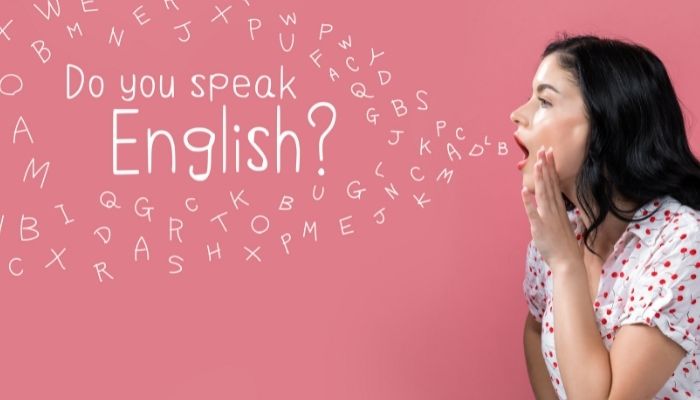


Any English language learner knows that often spelling isn’t very helpful if we want to know how to correctly say a word. Take a look at this sentence, focusing on the words in bold - do you know how to pronounce them?
"The man didn't feel very comfortable in his grey suit. He didn't enjoy wearing smart clothes, and when he wore them he felt a subtle difference in his personality.''
English spelling hasn't evolved much over time, but how we pronounce words has. This makes pronunciation a real challenge for language learners. But good pronunciation is not just 'how words and letters sound'; there are other equally important features to consider, like intonation (how the tone of voice changes during a sentence, going up or down), stress (which words and syllables have more 'weight' when we are speaking), and connected speech - how words can sound different when they are joined together in natural speech. All of these features contribute to good pronunciation - but don't confuse them with accent.
1. LISTEN
Listening to examples of authentic speech is the most obvious way to improve your own pronunciation. There are lots of ways to do this - watch a film in its original version, listen to podcasts about a topic that interests you in English, even listening to music can help. Try to notice the intonation that people use. You can add to this by ‘shadowing’. ‘Shadowing’ means listening to a short sentence or phrase, and then repeating it afterwards, trying to imitate the sounds, intonation and word stress and noticing how your mouth and tongue move when you speak.
2. RECORD YOURSELF
Once you have practiced ‘shadowing’, you could record yourself speaking - either repeating a short phrase that you have listened to, or doing a longer speaking task from a coursebook, like describing a picture. Listen back and make a note of any sounds that you have problems with - practice these words / sounds slowly and then record yourself again. Can you notice an improvement?
3. GET TO KNOW THE PHONEMIC CHART
The International Phonetic Alphabet (IPA) is a visual representation of different sounds. It might look strange and it might feel like you are learning a whole new language, but it can really help you with pronunciation. All dictionaries have a phonetic transcription of words so that you know how to pronounce them. This is really helpful with English because as we have already seen, English spelling doesn't always correspond with its pronunciation. Think about the letters 'ough' in the words 'though', 'through', 'tough', 'ought'. It would be impossible to guess how to say those words without some help.
4. USE A DICTIONARY
As well as printed dictionaries which will give you a phonetic transcription of a word, there are lots of online dictionaries where you can click and listen to the word being spoken.
5. DO SOME EXERCISE
Different languages have different sounds, and our mouths adapt to those sounds. Some sounds are physically very difficult for us to make, as they don't exist in our native language. Just like when you are learning a new sport or dance move, it's important that you train your mouth to know how to form new sounds - the more you practice the easier it gets. For example, lots of Spanish speakers have problems with the difference between the /b/ and /v/ sound. We make the /b/ sound by joining our lips together and then letting go. The /v/ sound is similar but your top teeth should touch your bottom lip before you let go. The more you practice this, the easier it gets - try saying "I'd like a very big beverage please''!
6. GET TO KNOW YOUR 'MINIMAL PAIRS'
'Minimal pairs' are words that have almost the exact same pronunciation, but with one sound that is different - for example, ‘ship’ and ‘sheep’. The difference between the /I/ in 'ship' and the /i:/ in 'sheep' is the length of the vowel. This can be difficult to hear for many language learners, and comes up in lots of different words. The first step is to be able to tell the difference between the sounds when you hear them.
Finally, don't feel bad if you still make mistakes with pronunciation - English is famously tricky. As far back as 1922, a Dutch language learner wrote a very long poem about the problems of English pronunciation called 'The Chaos '' - it may be chaotic, but with practice it can definitely get better!






















